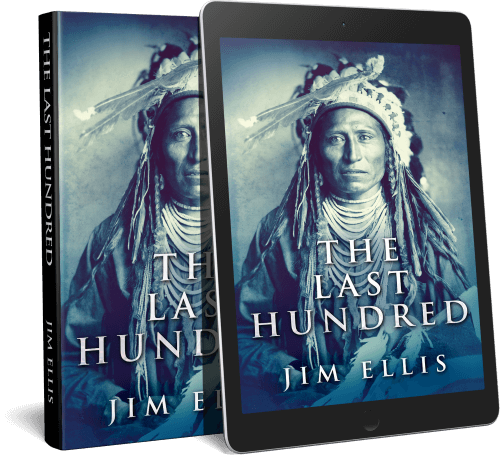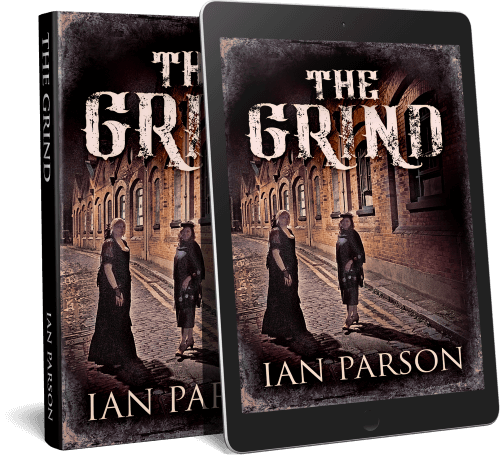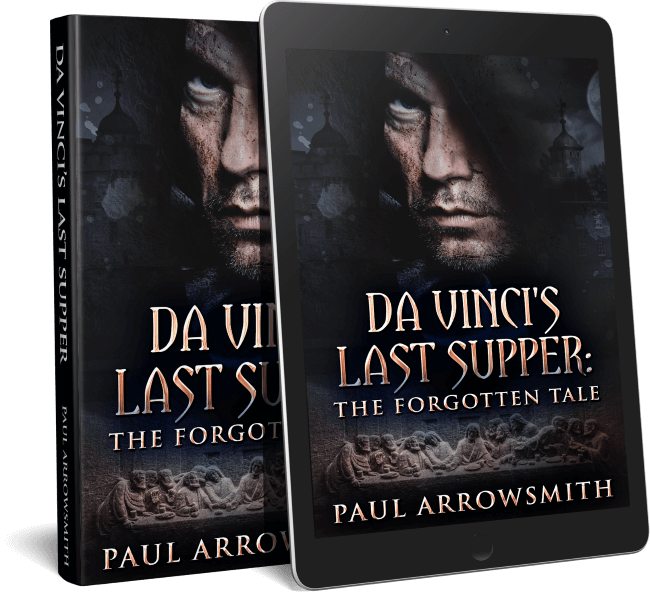The Last Hundred
Book excerpt
Chapter One
The Apache call the Sierra Madre the Blue Mountains.
The range of nine thousand-foot peaks runs for a hundred miles from the Sierra el Tigre south to the Basvispe Valley. Three rivers bisect it: the Rio Aros, the Rio Bavispe, and the Rio Yaqi. The Rio Bavispe guards the isolation of the Sierra Madre. The continental divide flanks the range on three sides. The mountains mark the border between Chihuahua and Sonora.
Hidden deep in the mountains are small fertile plateaus. It is hot in summer, but the temperature can fall to freezing when the sun slips behind the ridges. It isn’t a landscape for timid men – it’s a vast, menacing land dominated by mountains and sharp rocks, precipitous cliffs, snakes, jaguars, and wild cats. It is a place for retiring armadillos and badgers; the benign white-tailed deer, brightly plumaged parrots. It was a killing ground where Apaches fought Mexicans and Americans with no quarter asked or given.
And it was home to the last free, independent Apache, who dovetailed with this wild place, snugger than a mortice lock.
Jock MacNeil, formerly of the Confederate Navy and Stand Watie's Mounted Rifles, stood at the cliff edge of the rancheria, raised his arms to the sun and sang the Morning Song. He was giving thanks to Ussen, the God of the Apache, for the heavenly gift of the love he'd known with his wife, Miriam, and for the lives of their son and daughter.
Jock wasn’t a man who received divine grace on his knees. Ussen had given the land to the Apaches, even though the White Eyes took it from them, and their Government broke its promises. Ussen had also given Jock back his spirituality, replacing the primitive Catholicism which had slipped away when he was in his early teens, now nearly six decades past. Jock's voice, strong in the low registers, wavered on the higher notes, but strengthened as he offered his gratitude to Ussen for his protection from enemies and the bounties of the rancheria.
Suddenly, the heat of the sun vanished. A crushing sensation pierced Jock's heart, and he grew cold. Perhaps this was his time to die, and he hoped it wouldn’t be painful. Slowly, his thighs gave way, his arthritic knees collapsed under him, raised arms dropped to his sides, and he fell to the ground. He lay, twitching and shaking, his legs jerking so violently that he thought they might separate from his body. A foam of saliva gathered at the corners of his gaping mouth and hung on his cracked lips.
But Ussen hadn’t called Jock to the Happy Place, not yet. Ussen was sending the power. Jock could feel it. He was being asked to give another service for his people.
Suddenly, his soul left his body. He could feel a distant attachment to the shell lying on the ground, but he was transported to the old northern homeland. Homesickness and nostalgia swept through him as he saw his younger self with his wife and family, in beautiful Oak Creek Canyon. Oh, that sweet, happy time, that lost paradise.
Then the chin-a-see-lee touched his soul, and he was in the Parjarita Wilderness, the place of deep sorrow, reaching with crooked fingers to touch the earth where the bones of his beloved, Miriam, and their son and daughter lay in the grave he'd dug.
He sensed danger nearby and looked up. An aged man sat beside him. Jock suspected he knew him, though the old man's face was blurred. Farther back, a group of Apaches waited. The young men and women looked at him expectantly, and the old people stared pleadingly, and he did not understand why this was so.
Then he was once again in his body.
Jock gradually recovered. Presently he got to his feet, wiped the saliva from his chin with the sleeve of his calico shirt. Kusuma the old woman, who looked after him – and who was younger than he –stood by the side of his wickiup and beckoned him to breakfast. Jock wasn’t ready to eat and subdued his desire for coffee, pretending not to hear her calling. He adjusted the ties on his long moccasins, doubled over and fastened them at the knee. He admired Kusuma's deft work on the curled-up toes, which protected his feet from thorns and cactus spikes. Jock felt around the leggings, smiled as his hand rested on the pair of Derringers hidden there. The Derringers were old and well-preserved, each one primed with two .44 rounds; fatal at close range. If he were cornered and disarmed, he might fight his way out, or shoot himself if it came to that. Jock adjusted his long breech clout, unfastened and fastened the buckle of a leather Mexican Cavalry belt, and played with the position of the sheathed Bowie knife hanging at his left side.
“Jock,” Kusuma yelled. “The coffee'll be cold.”
He tried to walk confidently to his wickiup, ignoring the torment in his knees; but Kusuma was not fooled and spotted his ill-disguised limping.
Jock sat in the arbor of his wickiup, facing the sun and thinking. He liked to sit here when he had a decision to make. The vision from Ussen had added to his power, and he felt stronger, confident that he could do whatever Ussen desired of him.
Kusuma poured more coffee. Jock took generous swallows, washing down the last of the stewed hoosh made from the fruit of the prickly pear. He liked to watch the women gathering the fruit – using two sticks to save their hands from the spikes – then rolling the fruit on the ground to remove the barbs.
“You're going north again?” Kusuma said.
“Yes.”
“What if you're killed? Take Jim, or one of the warriors.”
“Jim's in worse shape than me. He knows what to do when I'm away. I don't need a warrior to protect me; my power to go north comes from Ussen.”
“I'll prepare food and water for your journey.”
“Pack some hoosh.”
Hoosh kept him regular. Piles did not go well with long days in the saddle and were he to get wounded up north, Jock didn’t want enemies laughing at his stained breech clout. Or if he were killed, he didn’t want his soul to know the White Eyes' contempt for an old, fiery-bottomed Apache.
Although he was troubled by what lay ahead of him, Ussen's mercy worked on Jock. He looked around, and a smile of satisfaction creased his habitually stern expression at what the band had achieved.
It was good to be up in the high places, deep in the old Apache heartland where Juh and the Nednhi Apaches roamed in the old days. The dome shaped wickiup behind him was built well, the best willow poles supporting the brush cladding and the roof of shingle-style bunches of bear grass, fastened with yucca strings. A wavering ribbon of faint blue slipped out through the smoke hole in the roof, drifting northwards in the southern breeze. Inside lay his weapons, the few belongings, and the comfortable grass and brush bed covered with a deerskin robe where he eased his old bones when the arthritis was acute. It was a sturdy permanent home, warm and dry in the winter and cool in the summer, not like the temporary, rickety shelters used in the eighteen-eighties when the Apache were on the run, pursued by American and Mexican soldiers.
In the small fields below him, corn and mesquite beans grew. There was lush grass for the horses, sheep and cattle. Water was plentiful, and a small stream was dammed, creating a pool for the animals to drink. Game was abundant. In autumn, berries were to be had for drying. Agave grew in the valleys and the women gathered it to make tiswin, a weak beer. The women and children risked the fury of wild bees to harvest honey. Lower down, aspen and scrub oak flourished; higher up, firs and oak grew thickly. Through that high forest was a secret path up and over the ridge which Jock had cut; an escape route if the stronghold were attacked. Food, weapons and ammunition were cached up there beyond the ridge. Stones were carefully positioned along the approaches to the stronghold, and a boy, a girl, an old man, or woman, could send an avalanche down on enemies. For now, his people were safe.
But now the power was on him. Today was the day to go north and overcome the sense of danger lurking in his soul. Unexpectedly, regret tugged at his heart, and his throat swelled. Perhaps Ussen was sending him up there to his death. Perhaps he might not see his beloved rancheria or his band again, but he kept his anguish hidden beneath an iron mask.
Cherokee Jim was crossing the open ground separating their wickiups. Jock waved him toward a folded blanket, and Jim sat down, resting his arms on his knees. He handed Jock a long, thin, dark Mexican cigar and simultaneously, they bit off one end. Jock held a hot ember to Jim who drew on his cigar until he was satisfied it was burning well. Jock lit his own cigar, and they smoked contentedly.
“You're all right, going north?” Jim asked.
“I'm fine. I want to visit the grave of my family. Oak Creek Canyon too. We were happy then.”
Jock let himself drift back more than sixty years to Miriam, his beloved wife, a petite slip of a girl who was fifteen when he first met her. She’d had an ebony complexion and walked so proudly, and she was so beautiful. As her face came back to him, he thought his heart might break. Tenderness surged in his heart as he recalled reviving her from near death by drowning, remembered his anxiety as he set the broken bone in her right arm; the relief in her lovely face when he made her drink laudanum to relieve the pain of her wound.
Kusuma, who looked after him, was good company; a gift from Ussen and he held her in great affection. But he was often lonely, and though he had Jim's friendship and the companionship of Kusuma, sometimes he craved the affection that came only from women. As leader, Jock might have insisted upon the company of younger women, but he knew he was ugly to the young, and he kept his honor by respecting all the women of the band. It was a respect which grew from his love for Miriam and their children.
The two men sat quietly.
Young voices came to them from the edge of the village and they turned to stare. A few older children in two lines, twenty yards apart, hurled rocks from slings at each other, dodging and weaving the flying missiles. One girl finished nursing a bloody forehead where a rock had struck, then slung a stone at her adversary. Jock nodded and saw Jim nodding, too. Simple games like these were preparations for the warrior's path. The noise and youthful energy reminded Jock of his own son and daughter, but they'd been murdered before they could learn to fight.
Jock chewed on his lip as he remembered finding their dead bodies, the top of their heads a bloody mess, where the scalp hunters had cut and wrenched away the hair. He looked up at Jim. “Might go to my secret stronghold in the Dragoons, look at some of our old places. The last time, maybe. Ussen has strengthened my power. I must overcome something dangerous. I saw some of our people, young and old, and I think I'm to help them, but I'm not sure. Ussen will show me when he is ready; He will protect me.”
“I'll come with you.”
“I need you here.”
“You know,” Jim said. “Once, your hair was copper, as mine was black. The hair on your face is no longer red, now it is white. But you are too young to die up there, maybe?”
“I'm seventy-seven years old, Jim, and you're well past eighty. Time we both thought about dying.” His knees ached from sitting still, but he was too proud to stand first. “Take care of things, Jim?”
“I'll do that, Jock. And I'm coming down the mountain with you.”
Jim reached for Jock's fifty caliber Sharps Rifle and, squinting out of his best eye, took the weapon apart, methodically cleaning and oiling it. Jock checked and cleaned a pair of Confederate Cavalry pistols, and the Derringers. He took a .45 Colt automatic pistol and shoulder holster, with extra ammunition for security.
Jock didn’t want trouble and wouldn’t look for it. But he wouldn't run from a fight either. He'd face enemies if they came at him.
Satisfied that his guns were prepared, Jock looked around again. It was a fine rancheria, and he was glad his Chiricahua had added farming to their raiding skills. Jock liked the Sierra Madre, especially the Sonoran side of the mountain, more fertile than the Chihuahua slopes. His band had been happy and safe since before 1920, raiding in Sonora and Chihuahua, fighting Turahumari who scouted for the Mexicans, trading with a couple of villages to which Jock gave protection from bandits. And there was the small mine where they extracted enough gold to pay for new weapons and supplies. Jock had strived to live well by serving his people, but he worried about the small numbers of warriors and young women and the survival of the band. And it grieved him, that given the resources of the rancheria, they couldn’t grow by much.
Perhaps that was why Ussen wished him to go out again.
















Praesent id libero id metus varius consectetur ac eget diam. Nulla felis nunc, consequat laoreet lacus id.